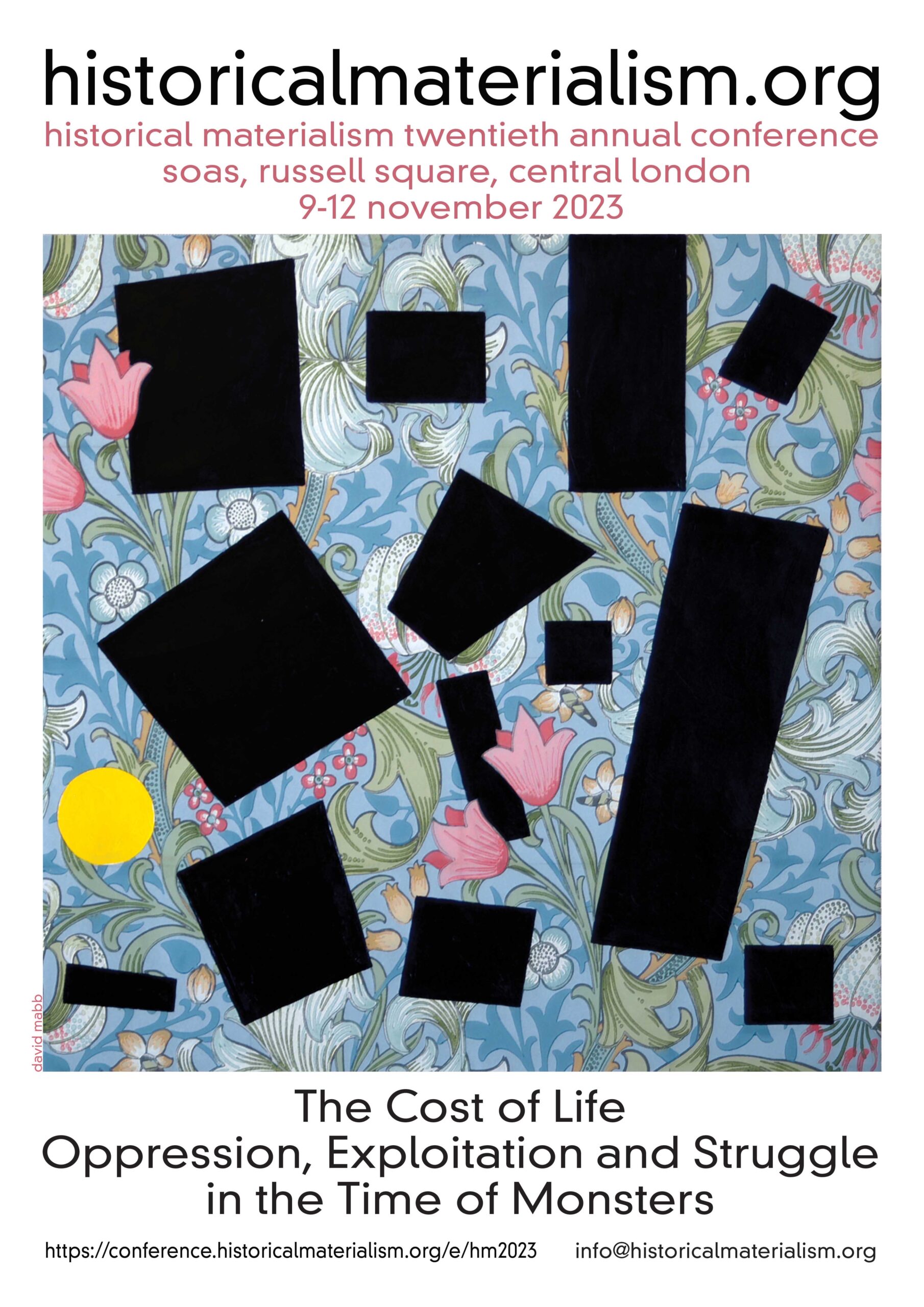
Historical Materialism, Twentieth Annual Conference: The Cost of Life Oppression, Exploitation and Struggle in the Time of Monsters
London (SOAS University), November 9-12
Kristoffer Balslev Willert, postdoc at PACA will attend the Historical Materialism twentieth annual conference - the cost of life oppression, exploitation and struggle in the time of Monsters.
Read more about the conference here: https://www.historicalmaterialism.org/event/twentieth-annual-conference/
Conference paper: “Mobilizing an anti-capitalist, ecological bloc: A new common sense”
Abstract:
Capitalism is destroying our planet. The fight against the climate crisis is necessarily a fight against capitalism. This calls for building an anti-capitalist and ecological bloc. Much work has been done in recent years within “green thinking” to outline how such a bloc could and should mobilize itself and what kind of theory is best suited for aiding such a mobilization. In this paper, I aim to show that the theoretical trench warfare between eco-Marxism and posthumanism/new materialism is stupid and does not resemble the alliances evolving in the real climate struggles under a common anti-capitalist and post-anthropocentric narrative. A common anti-systematic and anti-capitalist narrative is growing immensely these years, as I’ll show from a few cases – spanning from what has been seen as more ‘moderate’ to more ‘radical’ movements and activists. Just like the climate movements on the streets, in the fields, and in the forests have shown that there is no contradiction in merging anti-capitalist blockades of extractivist infrastructure with more-than-human sensibilities, animal ethics, and conceptions of care, so should eco-Marxists and posthumanists appreciate that they share a set of fundamental ideas although they often proceed from different methodological premises and stylistic preferences. To assist the anti-capitalist and ecological bloc on the streets, we need a theoretical, ecological bloc that downplays methodological and stylistic differences and instead highlights common aims and strategies. If there’s no opposition – but rather coalition – between struggles against the fossil economy and permacultural gardening, why should there be between the eco-Marxist focus on capitalist destruction and post-anthropocentric conceptions of care for the more-than-human?